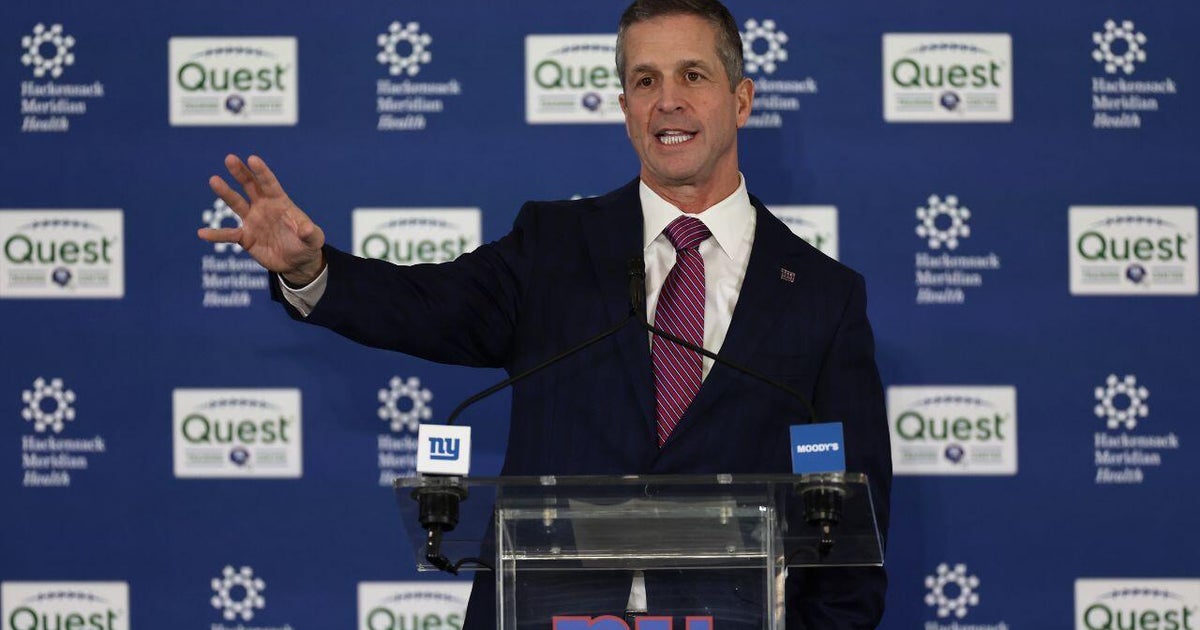Rutgers Could Soon Be Last Original Member Of Big East Football
NEW YORK (WFAN/AP) -- The Big 12 has a replacement lined up for Missouri before it even leaves the conference.
The Big East, meanwhile, is in danger of losing another school before replacing the three that already have bailed on the league.
And it could get worse. According to the New York Post, Notre Dame may have to start weighing their options.
"Each option has a strength and a weakness," a source told the paper. "The Big Ten keeps them a national program, but football will be hard-pressed to win the league and it hurts the basketball's ability to recruit in the East."
Acting quickly to make sure it maintains a 10-member lineup, the Big 12 approved bringing in West Virginia to replace Missouri when the Tigers complete their move to the Southeastern Conference, a person with knowledge of the decision told The Associated Press on Tuesday.
Without West Virginia, only one of the original eight schools that made up the Big East's football conference when it began in 1991 will remain: Rutgers.
The move is another step toward stabilizing a Big 12 that seemed on the verge of collapse about a month ago when Texas and Oklahoma were pondering a move to the Pac-12.
On the other side, West Virginia's pending departure from the Big East, which has lost two members and one member-to-be in the last six weeks, leaves the embattled conference facing another crisis.
The Big East is trying to reconfigure as a 12-team football league and has been courting Boise State, Navy and Air Force as football-only members and Central Florida, SMU and Houston for all sports. Commissioner John Marinatto met with officials from some of those schools Sunday in Washington.
Because there is no timetable for Missouri to complete its expected departure from the Big 12 - and the league's board of directors expressed "a strong desire" for Missouri to stay - there is no timetable for West Virginia to receive a formal invitation, the person said.
But West Virginia will accept an invitation from the Big 12 once it is offered, the person said.
During an interview Tuesday with KFRU-AM in Columbia, Mo., Missouri Chancellor Brady Deaton said it would be "days" or "a week or two" before the school announced its decision.
Interim Big 12 Commissioner Chuck Neinas has said he expects Missouri to compete in the Big 12 in 2012, though Deaton has said that if Missouri does make a move, he'd like the Tigers to be playing in their new conference next fall.
Missouri would become the SEC's 14th member and join Texas A&M, which made its move from the Big 12 official earlier this month.
A report reviewed by Missouri officials and obtained by the AP earlier this month stated a move to the SEC from the Big 12 could net the school as much as an extra $12 million in revenue a year.
West Virginia also likely would make more money by moving from the Big East to the Big 12. The Big 12 distributed $139 million to its members in 2010 and in April signed a 13-year TV deal with Fox worth $1.17 billion that kicks in next year. The conference also recently agreed to start sharing TV revenue equally.
"Everybody was talking about how the Big 12 was gonna to be the biggest loser and if we add West Virginia, we're going to end up being, the biggest winner because we're not just adding, we're adding quality," Kansas State basketball coach Frank Martin said. West Virginia and Kansas State meet in basketball on Dec. 8.
The Big East distributed $113 million to its 16 all-sports members last year and has yet to ink a new TV deal. Its separate deals for football and basketball expire in 2013.
It's also a step up in competition for the Mountaineers - at least in football. No. 25 West Virginia is one of two Big East teams ranked in the AP Top 25, along with No. 24 Cincinnati.
The Big 12 has five teams ranked in this week's poll, including No. 3 Oklahoma State, and not including perennial power Texas.
Geographically, West Virginia will be by far the easternmost school in the Big 12, 870 miles away from the closest Big 12 school, Iowa State.
West Virginia has been the Big East's most successful football program since the league lost Miami, Virginia Tech and Boston College to the Atlantic Coast Conference in 2004 and '05. The Mountaineers have been to a bowl game every season since and won two BCS games.
Last month, Pittsburgh and Syracuse announced they were leaving the Big East for the ACC and earlier this month TCU reneged on its plans to join the Big East in 2012 to instead go to the Big 12.
Marinatto has said he plans to make Pitt and Syracuse abide by the league's bylaws and stay in the Big East for the next two years. The Big East's 27-month notification will likely be a hurdle for West Virginia to clear on its way to the Big 12.
TCU only must pay the league's $5 million exit fee.
The Big East presidents voted last week to double that fee to $10 million if the league added either Navy or Air Force, but the conference has not formally invited any new members yet.
It's unclear how the loss of West Virginia will affect the Big East's expansion plans. The Big East made protecting its status as a BCS automatic qualifying conference its expansion priority, and adding Boise State's high successful football program to the conference with West Virginia had league officials optimistic.
Boise State President Bob Kustra has said that getting the Broncos into a conference with an automatic bid to the BCS was one of his top priorities, but the stability of the Big East was a concern. Boise State is in its first season in the Mountain West Conference. Air Force also plays in the MWC. Navy is an independent in football.
To replace West Virginia, the Big East could turn to Temple, which was also being considered before the conference decided to try to add the two Texas schools from Conference USA.
Is there any way the Big East survives? Sound off in the comments below...
(TM and Copyright 2011 CBS Radio Inc. and its relevant subsidiaries. CBS RADIO and EYE Logo TM and Copyright 2011 CBS Broadcasting Inc. Used under license. All Rights Reserved. This material may not be published, broadcast, rewritten, or redistributed. The Associated Press contributed to this report.)







